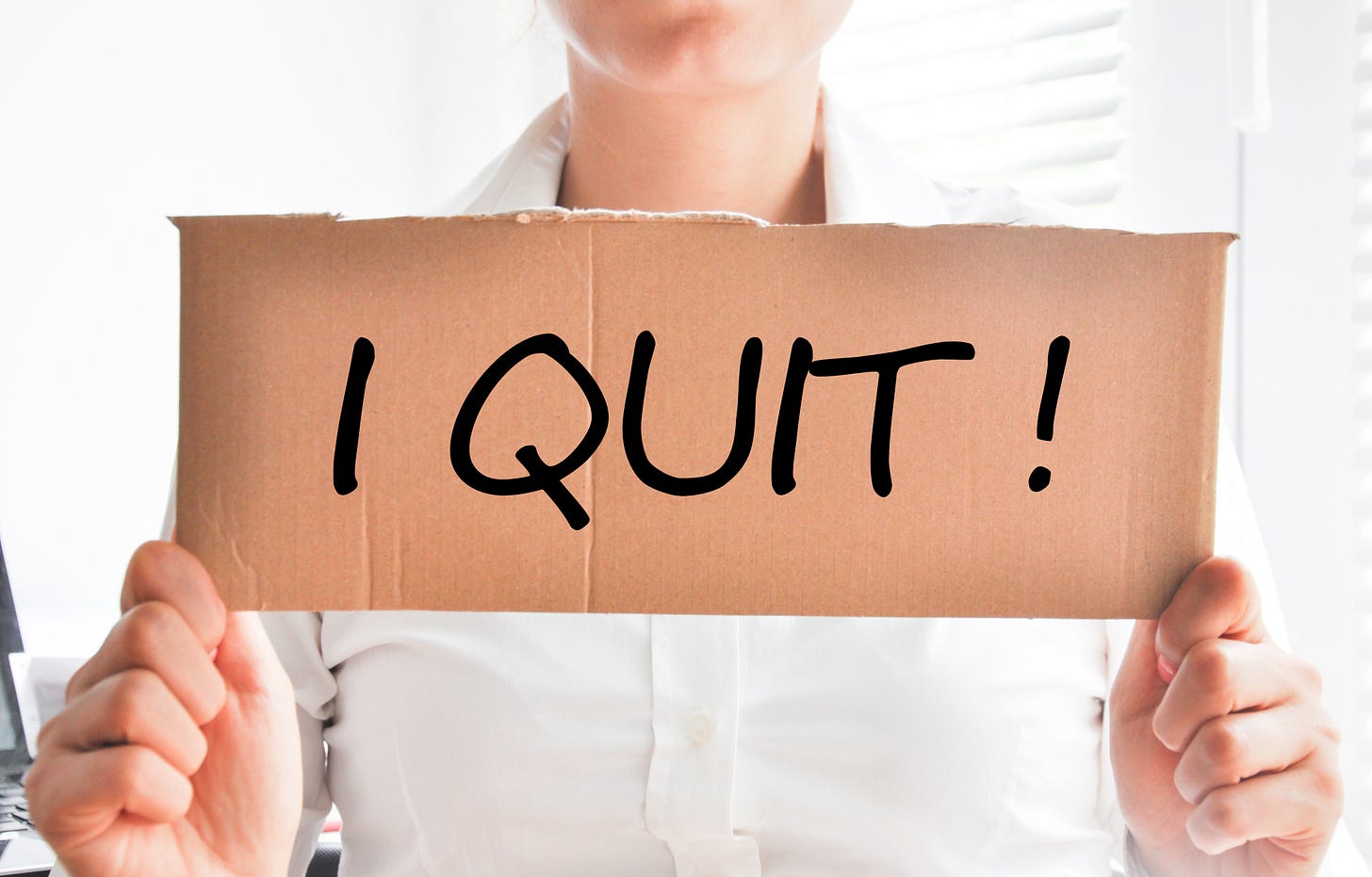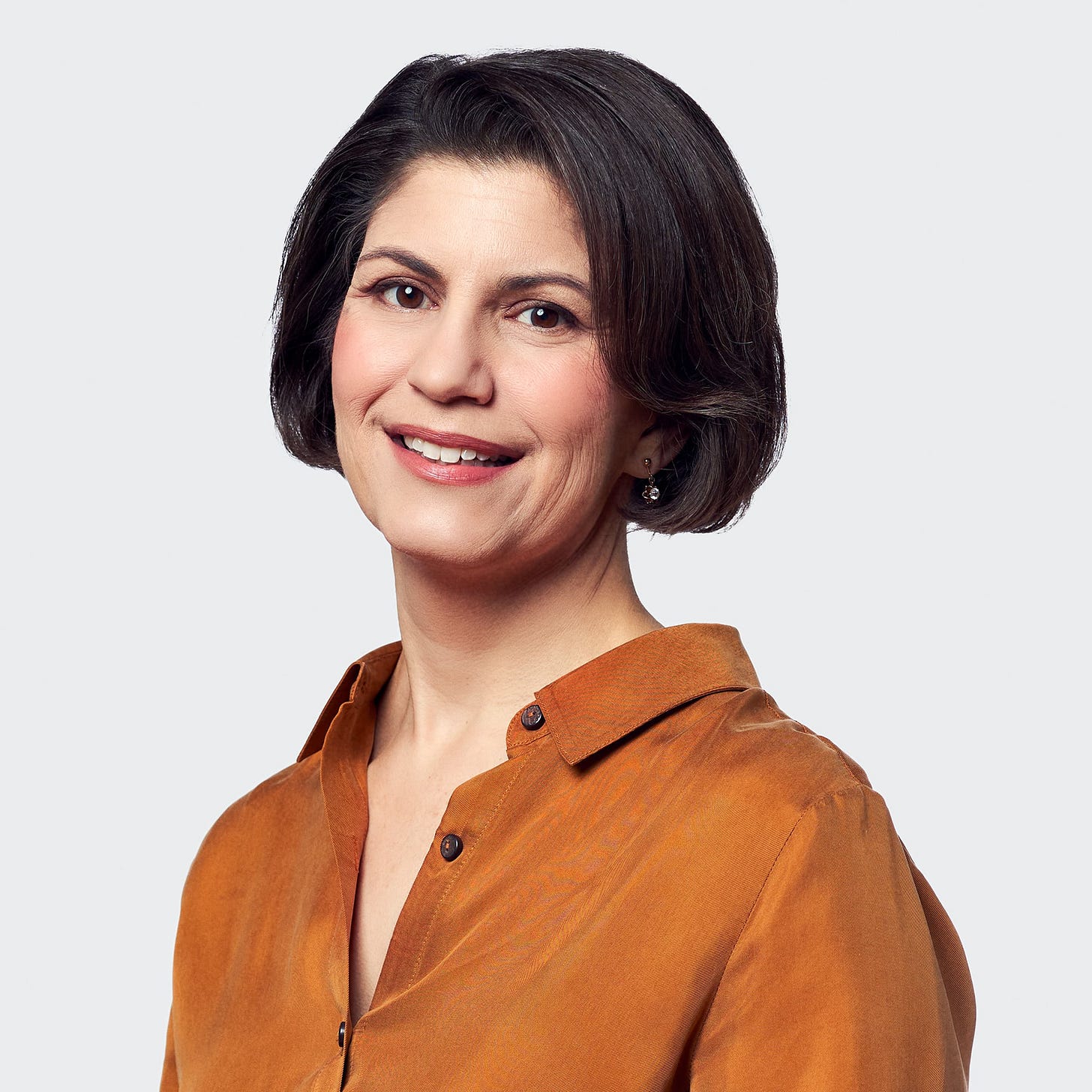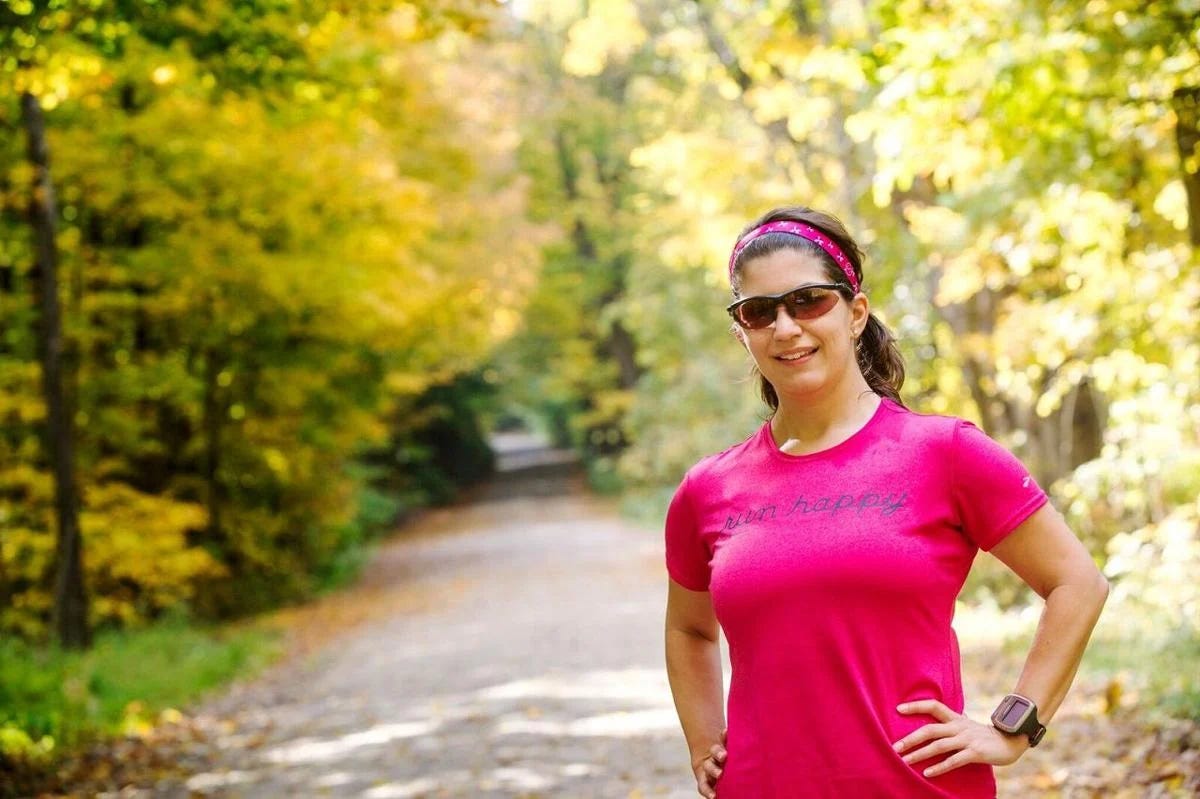Career Grief: Two Weeks Notice
Walking away from a job after almost 20 years opens the door to freedom and uncertainty.
Editor’s Note: This is the first of two parts on grief related to job changes. Our kids and death series returns next week.
Ask 10-year-old Jared Paventi what he wanted to be when he grew up and you would have received an emphatic, confident answer: sports play-by-play announcer. Of course I was going into sports play-by-play. I wanted to, therefore opportunities would manifest themselves. After all, no one else shared the same goal.
(NARRATOR WHISPERS: Thousands of other 10-year-old boys had the exact same career goal.)
Eventually, I learned to love writing and ended up in my current life as PR guy + freelance restaurant reviewer + death and grief Substacker. I get to do a serious job doing serious things (and make money), and scratch my creative itches in areas that interest me.
That’s not to say that there weren’t roadblocks along the way. I pivoted a few times in my journalistic pursuits, as I developed my voice and the type of writer I wanted to become. My goals of supplanting Bob Costas were set aside when I determined sports writing to be my more achievable goal. I set that aside in college when I began interning in the sports communications office, after determining that I enjoyed controlling the information much more than reporting it. For logistical reasons1, I left sports PR for regular old PR.
Leaving your job is not for the faint of heart. Even the most confident person walks into a new job at a new company with a little bit of self-doubt, as they learn the corporate culture, personalities in the room, and how the sausage gets made at the new place. I spent the first few weeks in my new role wondering what I got myself into, having left the comfortable familiarity of what I once knew for the great unknown. The risk has proven to be well worth the reward, but about 3% of me thought I made a mistake.
The comfortable familiarity, though, was the problem. I was at my ceiling of growth and, worse than that, I was bored2. While I had felt that way for a few years, it wasn’t until the final 18 months or so that I gained an important piece of perspective: my value.
It takes a person a long time to understand what their value is to an organization; what they bring to the table, how they share that value, and how they feel the organization values them in return. For a long time, I was okay undervaluing myself. I worked at a nonprofit, so I would never make the market rate. I got a ton of vacation and had a compassionate supervisor who tried to take care of us the best she could. I figured that the organization would have my back in case I needed something, part of that value exchange.
I was naive, even at age 443.
News came out in spring 2021 that we were returning to our offices, after months of being told that no one would be forced to return to the office. I was coming off one of one of my best performing years ever, doing more with significantly less support, in the face of the pandemic. Surely the powers that be would see that working from home motivated me and provided a better environment than the commotion of an office, and grant my request to work from home permanently.
(NARRATOR WHISPERS: They did not.)
Six weeks later, I accepted a new position.
Now, I hope to never live through another global pandemic but, in a twisted way, it did a lot of good for me professionally4. I did some of my best work during the pandemic. For the first three months, I turned chicken shit into lemonade5. During my 17 months of pandemic employment, I recognized what I was doing to keep things afloat in our region, with all 20 fingers and toes plugged into the holes in the dam to keep it from breaking. I realized my value was greater than my paycheck, but that it was time for my paycheck and my work environment to be addressed.
No one is irreplaceable. It’s a fact that I preached to others and that I thought I had taken to heart. It is a little shocking, though, when your own words come to life before your eyes. They showed me how replaceable I was. So, I decided to be replaced.
There was a little short-term loss felt as I walked away from what amounted to the only job I ever had6. It was the people that I missed, as I had built a network of work friends that were all in the PR, marketing and government affairs spheres. My supervisor had been my boss for more than a decade, so I would definitely miss her. And, there was the comfortable familiarity of the job.
(NARRATOR WHISPERS: It was complacency.)
IT WAS NOT COMPLACENCY. I was risk-averse. I can talk a big game about leaving my comfort zone, but doing so was more intimidating than I thought. Jumping industries after nearly 20 years of talking about aging is a bit scary.
But, the hardest decision is made for you the day when you realize that your company values you even less than you thought they did.
Leaving a job or changing careers means taking a chance…a chance on yourself. There is your personal wellbeing and health, your financial position, and your professional growth to consider. Add in a family relying on you to the mix, if you’re in that position.
It’s not like dealing with the death of a person and it’s not as if your career has died either. But there is some level of loss to confront. It’s important to sit with these ideas, accept the decisions you have made, release the factors you cannot control, and learn from the entire experience. It’s a different sort of grieving, but grieving nonetheless.
Dirt Nap Q&A: Amy Moritz
Amy Moritz is a longtime friend. She had just graduated from college when I arrived at St. Bonaventure University, along with her brother
. He and I became friends and, by extension, she and I became acquainted. Amy started at as a reporter at the Olean newspaper, graduating to the coveted St. Bonaventure men’s basketball beat, before moving back to the Buffalo area, where she worked at The Buffalo News for nearly 20 years. Until she didn’t.Amy made the choice to leave and find something more fulfilling. She got a master’s degree. She volunteered with a local literacy group. And, today, she is working for The Martin Group, a Buffalo-based ad agency. One of her projects is editing She's Got Next, an ongoing series that illuminates the accomplishments and wisdom of women in sports and sport-adjacent fields while amplifying their voices and experiences.
You went into the newspaper industry after college, as we were trained to do as journalism majors, and spent more than 20 years in the industry. Did younger you ever question your career path or did you possess that unbridled love of writing that it never came up? Or was it somewhere in between?
I was always drawn to writing. I loved reading and while I never opined about writing The Great American Novel, I knew I wanted to write. In junior high, an English teacher said to me, "you love sports and you love to write, you should think about being a sports writer." I thought that was the greatest idea ever. And so that was my focus all through high school and college. I don't think I ever questioned my career path so much as I was open to other possibilities, such as sports information. I never pursued it in school, but I knew there were plenty of opportunities outside the sports pages of a newspaper.
You left the newspaper business mostly on your terms, which must have been extraordinarily empowering and really scary at the same time. Can you talk about making the leap and what you felt in the run-up? Was it like going off a diving board, with a sense of weightlessness or more of a bungee jump where there is a fall but you had someone (family, friends, etc.) as a tether to keep your safe?
It was a wild bag mix of emotions. In some ways, it was an escape. I was tired after more than two decades in the business. Writing about sports is great, except that it happens on nights and weekends, which means you're working on nights and weekends. And with the rise of social media, there really were no days off and no down time. The industry was changing and the newsroom was shrinking as well, which meant I was tasked with jobs that, quite frankly, I didn't want to do because they took me away from writing. I was ready to try something new and looked for those opportunities, applying for jobs until I found one working in marketing and development for a non-profit.
I remember my last day in the newsroom. No one was left on the floor and I just looked around with this pit in my stomach. In my excitement for a new position and in taking a leap of faith into a brand new challenge, I didn't really think much about what it would be like to NOT be a sports reporter anymore. The feeling in the newsroom that last time is difficult to describe. Part longing. Part nostalgia. This knowing that I was leaving part of who I was, or at least who I thought I was, behind.
You worked for a few nonprofits before coming over to the dark side of PR with me. Can you talk about the differences in your storytelling approach?
Well, I don't really see it PR as necessarily “the dark side.” I mean, it can be for sure. And I was hesitant about working for an agency, even though I didn't know the first thing about working for an agency. But ethical behavior is ethical behavior, whether in the newsroom or a PR bullpen. I think the main difference in storytelling approach is in talking with the client, whose story you are telling, and crafting the work to match their voice. The general storytelling is the same — as a reporter, I am telling someone else's story. As a PR practitioner, I am telling someone else's story in their voice. In both cases, my approach works best when it can be personality driven, when it's about something bigger than a data point. And in both cases, you're pitching your story — either to an editor or to a client (and then to an editor).
Do you think you experienced any of the five stages of grief — denial, anger, bargaining, depression, acceptance — as a result of leaving your career in journalism?
I never thought about it in those terms, but I sure did. For the longest time, I couldn't really watch sports. There was some denial, anger and depression in there. I was missing my connection to the games and the players that I had. I was missing that interaction. I was missing the people and I didn't want to be reminded of that. So I cut it off all together. Now, I'm enjoying sports again; I've become a fan again, which was difficult because for so long I had to actively NOT be a fan. (No cheering in the press box!) And I find that I do miss writing. I miss talking with people and telling their stories in ways that didn't need a KPI. (Which is also a longing for the olden days of journalism, before readership metrics and such.)
For a long time, I said that I didn’t know what I wanted to be when I grow up. I’m still not 100% sure, though this amalgam of PR guy/freelance restaurant reviewer/death writer seems to fit the bill for me right now. I have found that there is some freedom in not defining yourself by your career, pigeonholing yourself in a role, or thinking that this is the only thing I will ever do. So, along those lines, what do you want to be when you grow up?
Despite that fact that “sports reporter” was my career path since 9th grade, I still don't entirely know what I want to be when I grow up, because there are so many things to try. So many options to take. I give my stepdaughter only one piece of life advice: No decision is ever final. You always get to choose again. I have found that I enjoy teaching and mentoring college students and would like to lean into that more in the future. My passion for women’s sports has never gone away, and I actively look for ways to stay involved in that space. But my life is about so much more than how I earn my paycheck. Only now I finally feel free to say that out loud - and believe it.
What’s the best bit of advice you would give to a person questioning their place in their career after years of not wanting to do anything else?
I think there was a part of me, when I left journalism, that felt I was a failure because I was leaving. So I understand the uncomfortable feelings that come with questioning your career after years in that career. Let yourself have those feelings. Give yourself permission to explore other options. It's a big world. You get to choose again.
More importantly, 30 years later, what would you tell younger you?
I would quote Working Girl, of my favorite movies from the 1980s: “Wise up and don't take the whole thing so seriously.”
Share your story
Not all grief is about the death of a person. A Griever’s Digest can be about the loss of a relationship, a job or something meaningful but inanimate. Consider sharing your grief with a bunch of strangers. Email me at jaredpaventi@substack.com.
Final thoughts on finality…
Dirt Nap is the Substack newsletter about death, grief and dying that is written and edited by Jared Paventi. It’s published every Friday morning. Dirt Nap is free and we simply ask that you subscribe and/or share with others.
We are always looking for contributors and story ideas. Drop a line at jaredpaventi@substack.com.
I’m all over social media if you want to chat. Find me on Facebook, Twitter/X and Bluesky. I’m on Threads and Instagram at @jaredpaventi. You can try messaging me on LinkedIn, but I don’t check my messages regularly.
If you or someone you know is in crisis, call or text 988 to reach the Suicide and Crisis Lifeline or chat live at 988lifeline.org. For additional mental health resources, visit our list.
Sports communications is a grueling industry and one that is limited to where the colleges or pro teams are. I had just finished a two-year appointment at Syracuse University, where was no opportunity to stay longer. I could have moved, but my fiancée-now-wife was already teaching at a local school, I had a corporate job offer, and decided that would be my path. Stay tuned for next week’s edition of being laid off to learn how that fell apart within months.
Bored Jared becomes Indifferent Jared, which leads to sloppy work and self-destructive risk taking as I see how I can push the envelope and keep myself entertained.
You’re going to see the word naïve more with regard to me and my previous employers. The pandemic was a real eye-opener for me, the value I bring and what I’m willing to accept from an employer.
I find my bright sides and silver linings in odd places.
Combining two clichés here.
It wasn’t the only job I ever had, but I worked two years in an office during grad school and nine months at my first job post-grad school. Spending 18 1/2 years in one place felt like the only job I ever had. And, what’s worse, I would have stayed had they not lied to us and ordered us back to a cubicle.










